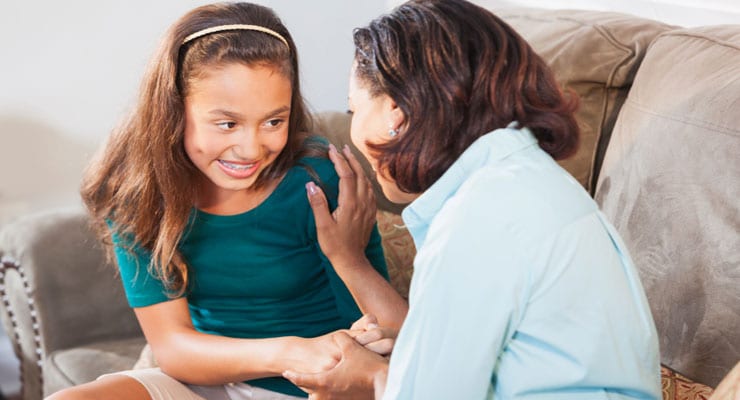This guest post is by Dr. Celyna Delgado, Obstetrics & Gynecology at Institute for Women’s Health.
Let’s face it-when thinking about your kid’s back-to-school vaccinations, the Human Papilloma Virus (HPV) vaccine is probably not on the top of your mind, right? With over 12,000 U.S. women and 7,000 U.S. men developing an HPV-associated cancer annually, it should be.
What is HPV and why should you care as a parent?
HPV is the name for a group of viruses that includes more than 100 types. More than 40 types of HPV can be passed through sexual contact. The types of HPV that infect the genital area are called genital HPV. Over half of sexually active people will have HPV at some point in their lives- making it the most common sexually transmitted infection among men and women not just at the San Antonio OB/GYN practice where I see patients, but also nationally. In many cases, HPV goes away on its own, but if it does not go away, it can cause major health problems such as cervical cancer in women and other types of cancer in both women and men. Why take that risk?
Is the HPV vaccine safe?
With the numbers of HPV-associated cancers so high, it is important to understand the facts, especially when it comes down to who should be vaccinated. Let’s address some questions you may be asking yourself. Do doctors recommend the vaccine? If so, at what age should young women and men get the vaccine?
It is estimated that getting the HPV vaccine could have prevented nearly 21,000 HPV-related cancers in the U.S. alone. So, yes, as a physician, I recommend the vaccine (along with the rest of the medical community). Adverse side effects of the vaccine are rare and similar to those of any other vaccine. The benefits greatly outweigh the small potential of the drawbacks.
The HPV vaccine is approved for men and women beginning at age nine through 26 years old. I know what you’re thinking: “My nine-year old is not sexually active, nor do I want him/her to be!” However, the vaccine works best if it is administered before exposure, before your child is even remotely thinking about becoming sexually active.
How to start the discussion
How do parents approach this conversation when their young children are not sexually active? Explaining a sexually transmitted virus vaccination to your son or daughter who may only be 9 or 10 years old can be difficult. Although this can be a tough discussion for many parents, it is increasingly a necessary one.
Like with any vaccine-preventable disease, a discussion with your child should start with an understanding of how certain viruses are harmful to their health and that these vaccines have been developed to help protect him/her. Just like with measles, it is protecting them against something that they could get in the future without the vaccination. It is a preventative measure. In this case, it could prevent a sexually transmitted infection.
Consider being open with your kids on the subject; this offers up an opportunity for you to talk about sexual health and get the discussion started. I know we all dread the awkward sex talk, but giving your children the information they need is beneficial to you both. Starting the conversation yourself will help your child feel comfortable approaching you with these topics and questions in a way that they might not be without an open discussion. Studies have actually shown that children or teens who talk to their parents about sex are more likely to delay having sex until later on in life than their counterparts. In addition, they will be more likely to practice safe sex when they are sexually active, so both parties win!
Talk to your Doctor
Remember, you’re not in this alone. While the vaccination is recommended, talk to your doctor about what is best for your child. Your doctor will be able to answer any questions or concerns about the HPV vaccine and your child’s health.

